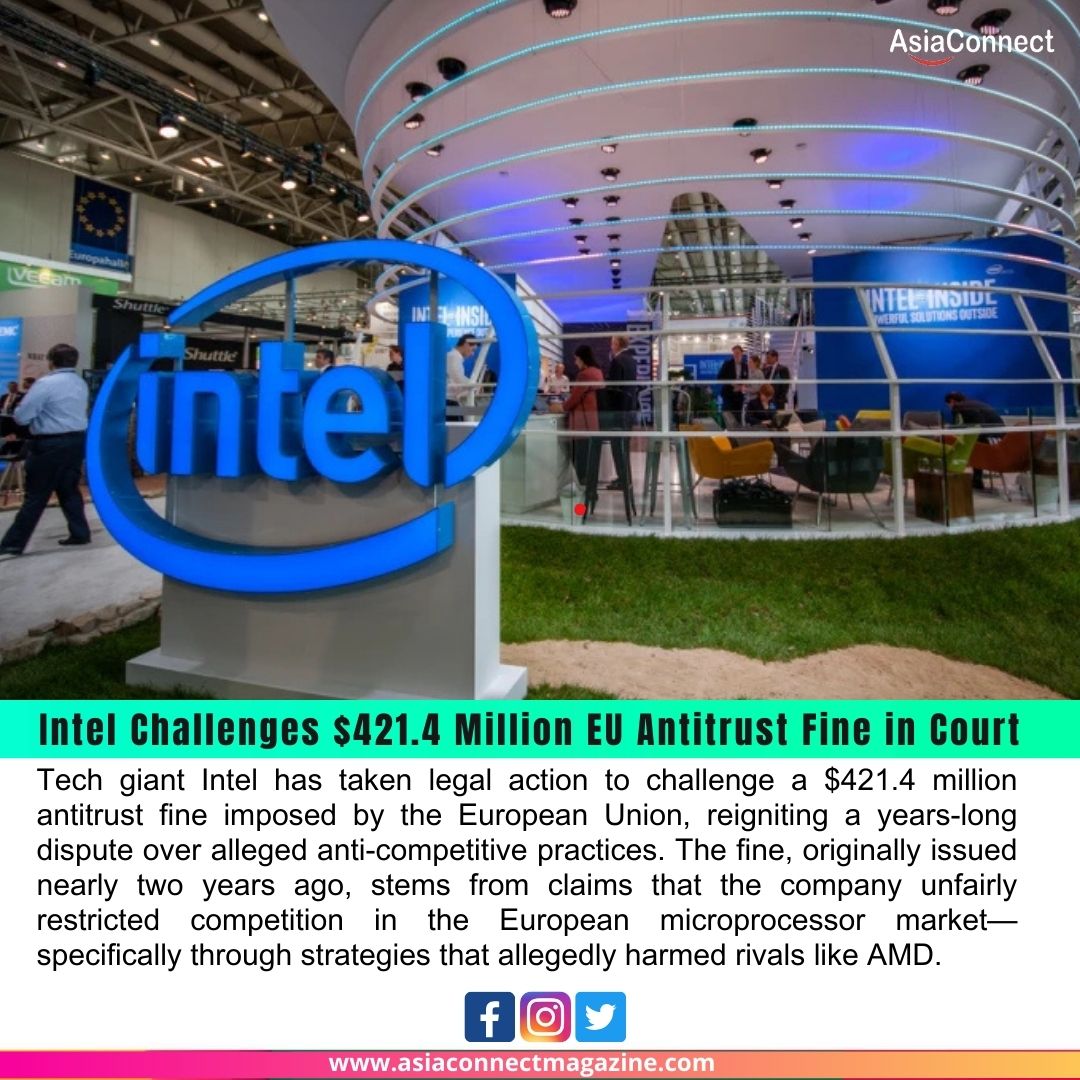Tech giant Intel has taken legal action to challenge a $421.4 million antitrust fine imposed by the European Union, reigniting a years-long dispute over alleged anti-competitive practices. The fine, originally issued nearly two years ago, stems from claims that the company unfairly restricted competition in the European microprocessor market—specifically through strategies that allegedly harmed rivals like AMD.
The European Commission had accused Intel of engaging in exclusionary practices, including offering rebates to computer manufacturers that agreed to buy the bulk of their chips from Intel. According to EU regulators, these practices undermined competition by discouraging companies from dealing with Intel’s rivals, thereby limiting consumer choice and distorting market fairness.
This fine is part of a larger saga that began over a decade ago. In 2009, the European Commission first slapped Intel with a record €1.06 billion fine, alleging that the company abused its dominant market position between 2002 and 2007. That penalty was overturned in 2022 by the EU General Court, which ruled that the Commission had not adequately proven that Intel’s actions had an anti-competitive effect. However, the court upheld a smaller portion of the case, leading to the recalculated fine of €376 million (equivalent to $421.4 million) in 2023.
Now, Intel is asking the EU General Court to annul this partial fine as well. In its arguments, the company contends that the remaining allegations are also unfounded and do not justify any financial penalty. Intel insists that its conduct did not violate EU competition law and that its rebate schemes were part of normal business competition, not predatory behavior.
The case is significant for multiple reasons. First, it underscores the continued scrutiny of Big Tech by European regulators, who have taken a firm stance against companies they believe abuse their market dominance. Second, it sets the stage for future interpretations of how companies can compete in highly concentrated markets like the semiconductor industry.
For Intel, the case is not just about money—though the sum is considerable—but also about protecting its reputation and maintaining business practices that it views as legitimate. A win for Intel could set a precedent for how aggressive pricing and rebate strategies are treated under EU law. Conversely, a loss could encourage further regulatory action and embolden future lawsuits.
The broader implications also affect competitors like AMD and Qualcomm, who have often criticized Intel’s tactics. If the court upholds the fine, it could signal a more protective environment for smaller players in the market, encouraging more innovation and competition.
As the legal battle continues, all eyes are on the court’s final decision, which could reshape not just Intel’s strategy, but also the future regulatory landscape for tech companies operating in Europe. Regardless of the outcome, this case reinforces that the European Union remains one of the most aggressive watchdogs when it comes to enforcing antitrust laws in the digital age.





